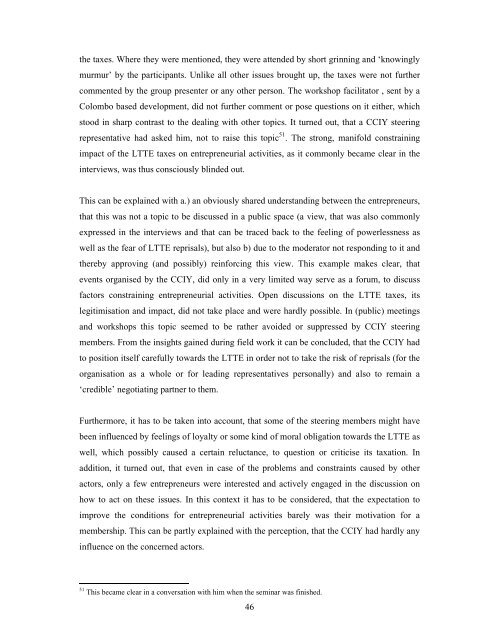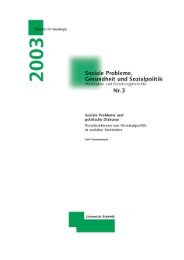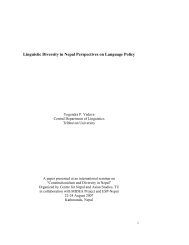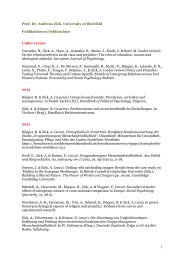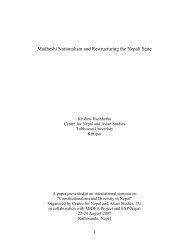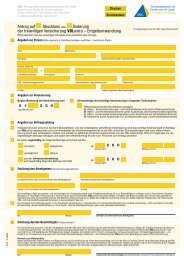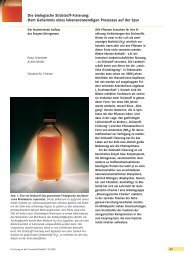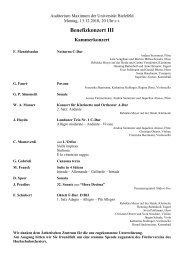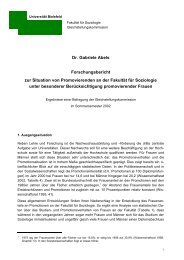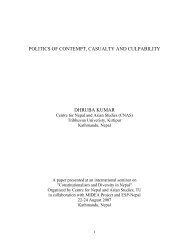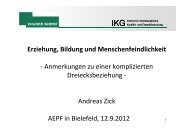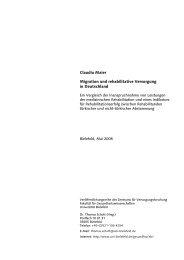Student Research Project Sri Lanka 2002 Supervisors: Prof. Dr ...
Student Research Project Sri Lanka 2002 Supervisors: Prof. Dr ...
Student Research Project Sri Lanka 2002 Supervisors: Prof. Dr ...
Create successful ePaper yourself
Turn your PDF publications into a flip-book with our unique Google optimized e-Paper software.
the taxes. Where they were mentioned, they were attended by short grinning and ‘knowingly<br />
murmur’ by the participants. Unlike all other issues brought up, the taxes were not further<br />
commented by the group presenter or any other person. The workshop facilitator , sent by a<br />
Colombo based development, did not further comment or pose questions on it either, which<br />
stood in sharp contrast to the dealing with other topics. It turned out, that a CCIY steering<br />
representative had asked him, not to raise this topic 51 . The strong, manifold constraining<br />
impact of the LTTE taxes on entrepreneurial activities, as it commonly became clear in the<br />
interviews, was thus consciously blinded out.<br />
This can be explained with a.) an obviously shared understanding between the entrepreneurs,<br />
that this was not a topic to be discussed in a public space (a view, that was also commonly<br />
expressed in the interviews and that can be traced back to the feeling of powerlessness as<br />
well as the fear of LTTE reprisals), but also b) due to the moderator not responding to it and<br />
thereby approving (and possibly) reinforcing this view. This example makes clear, that<br />
events organised by the CCIY, did only in a very limited way serve as a forum, to discuss<br />
factors constraining entrepreneurial activities. Open discussions on the LTTE taxes, its<br />
legitimisation and impact, did not take place and were hardly possible. In (public) meetings<br />
and workshops this topic seemed to be rather avoided or suppressed by CCIY steering<br />
members. From the insights gained during field work it can be concluded, that the CCIY had<br />
to position itself carefully towards the LTTE in order not to take the risk of reprisals (for the<br />
organisation as a whole or for leading representatives personally) and also to remain a<br />
‘credible’ negotiating partner to them.<br />
Furthermore, it has to be taken into account, that some of the steering members might have<br />
been influenced by feelings of loyalty or some kind of moral obligation towards the LTTE as<br />
well, which possibly caused a certain reluctance, to question or criticise its taxation. In<br />
addition, it turned out, that even in case of the problems and constraints caused by other<br />
actors, only a few entrepreneurs were interested and actively engaged in the discussion on<br />
how to act on these issues. In this context it has to be considered, that the expectation to<br />
improve the conditions for entrepreneurial activities barely was their motivation for a<br />
membership. This can be partly explained with the perception, that the CCIY had hardly any<br />
influence on the concerned actors.<br />
51 This became clear in a conversation with him when the seminar was finished.<br />
46


